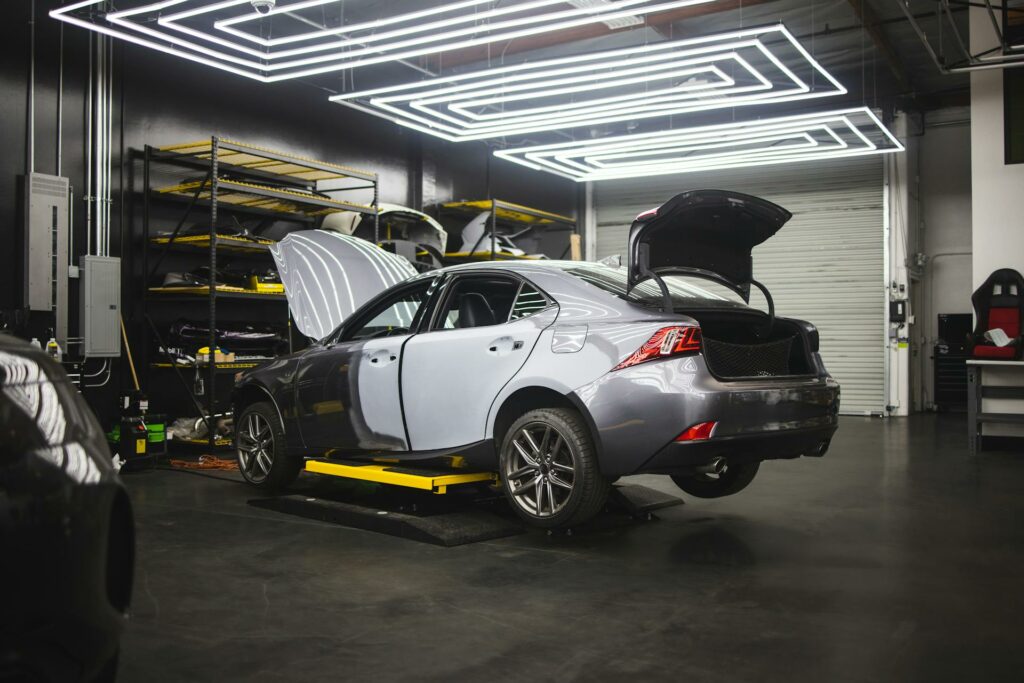
American car buyers, through no fault of their own, buy 150,000 defective vehicles every year according to the National Highway Traffic Safety Administration. These consumers fall victim to these “lemon” vehicles, which contain repeating, unfixable problems ranging from cosmetic and annoying to major and possibly dangerous. Lemons can come from any manufacturer, whether they be domestic automakers including Ford and General Motors, or foreign manufacturers including Honda, Toyota or Volkswagen. Many factors can make a vehicle a lemon: it can be something as seemingly innocuous as an unpleasant odor or inexplicable rattling sound, to something as dangerous as an engine flaw or safety system failure. No matter the cause, one thing stays consistent: the manufacturer is legally obligated to fix the problem and make you whole. When the manufacturer fails to do this, lemon law attorneys can step in and make sure you get compensated.
Lemon cars can cause their owners sudden, unforeseen financial hardship. Consumers already spend a lot of money when buying a new car, especially nowadays. Even though the consumer can (and should) bring their new vehicle back to the dealership when they first experience problems with it and not go to a third-party garage, there are still costs incurred. For example, if you use your car to get to work, you have to find alternative transportation. While some people can rely on friends or family, others might need alternatives including public transportation or car rental. These costs, especially the latter, can add up quickly. Barring that, you might have to miss work because you don’t have a ride, costing you more money than you’d lose finding a ride. Lemon cars can drastically affect how much money you earn, and how much you keep.
For more information on arbitration and other frequently asked lemon law compensation criteria questions, click here.
Unexpected towing can cut into your budget as well. If your lemon car experiences a problem that immobilizes the vehicle away from home, you’ll have to pay to get the vehicle towed to the dealership. These costs too can add up quickly.
Ignoring your lemon car and pretending it’s not a big problem can eventually harm your bank account when it’s time to sell, as well. Lemon cars garner a reputation that follows them throughout the marketplace, and you may not get as good a sale price as you would have when selling a non-lemon vehicle. Known lemons get far less back in resale or trade value than non-lemons.
One potential remedy a manufacturer can employ when compensating lemon car owners is a “buyback” where, as you might expect, the company buys the car back from the consumer. The manufacturer refunds the consumer the money spent on the vehicle. This is one of the faster compensation methods as the manufacturer simply cuts you a check in exchange for the vehicle, plus what you spent on sales taxes, title registration and other fees. Most state laws also require the manufacturer reimburse you for incidental costs you encountered because of the vehicle’s defects, including rental car fees, towing costs, phone or mail communications made when contacting the dealership or manufacturer, personal property damage, attorney’s fees if the consumer hires an attorney after learning the manufacturer has also hired an attorney, and even room and board if the vehicle fails while on an out-of-town trip.
Think you have a lemon, click here to fill out a 30 second form.
These vehicles are “branded” with special titles denoting their lemon status. The title branding explains what was wrong with the car, and dealers cannot knowing sell a branded title car that hasn’t been repaired. When the manufacturer repurchases the vehicle, that vehicle must be repaired and thoroughly inspected before it can be resold. Branded vehicles lose a significant portion of value when compared to non-lemon vehicles.
One thing to keep in mind when considering a manufacturer buyback is the manufacturer’s right to withhold a “reasonable allowance for the consumer’s use of the vehicle.” In plain English, this means the manufacturer can pay you back less than the vehicle’s total value depending on how much you drove the vehicle before taking it back to the dealership. This shows how important it is to promptly bring the vehicle back to the dealership as soon as possible following the discovery of a potential defect.
Consumers can also opt for replacement, in which the manufacturer provides a vehicle as similar as possible to the original, defective one. The manufacturer must provide a “comparable” vehicle, meaning one of the same make and model as the defective vehicle. Just as in the case of a buyback, the manufacturer can also withhold a certain amount of money paid according to the use of the defective vehicle.
One cost at which a consumer may blanch at is the cost of legal representation, if their manufacturer proves less than cooperative. However, that consumer need not worry. Lemon law lawyers take their fees directly from the manufacturer, meaning consumers pay nothing out of pocket. This is thanks to the federal Magnuson-Moss Warranty Act of 1975.
The Magnuson-Moss Warranty Act, signed into law in 1975, arose in response to consumer complaints of violations by companies throughout the early 20th century. The law of the land for the decades previous was “caveat emptor:” let the buyer beware. Consumers were expected to take caution when dealing with vendors and deal with any problems themselves. However increased industrialization and commercialization added additional steps between manufacturers and the end consumer, and new laws were needed to protect American consumers.
Lemon laws are confusing. Read our guide to the lemon law complaint process.
Lawmakers and business leaders first created the Uniform Commercial Code (UCC) to standardize sales and commercial transactions across the country. Most states adopted the UCC either wholly or partially into their own laws except Louisiana, which opted to keep its own civil law traditions.
Eventually, consumers and lawmakers decided the UCC did not go far enough and demanded additional congressional oversight and government intercession in warranty law. Sen. Warren Magnuson introduced the bill into the U.S. Senate on May 14, 1973. It passed the Senate on Sept. 12, 1973, and later passed in the U.S. House of Representatives on Sept. 19 of the same year. President Gerald Ford signed the bill into law on Jan. 4, 1975.
The Magnuson-Moss Warranty Act requires manufacturers designate any warranties they offer as either “full” or “limited” and specify exactly what they cover in a single, clear, easy-to-read document. They must also make the warranty conspicuously available for consumer review, allowing consumers to shop for warranty coverage before making a purchase.
One important fact of the Act states if a consumer prevails in court against their consumer, the manufacturer must pay for the consumer’s attorneys’ fees. This means consumers pay nothing out of pocket for legal representation for their lemon law claim.
The attorneys of Allen Stewart P.C. stand up for their clients every day against big business and get them the compensation they deserve. When it comes to lemon law claims, speed is your ally. Reach out to Allen Stewart P.C. today.

